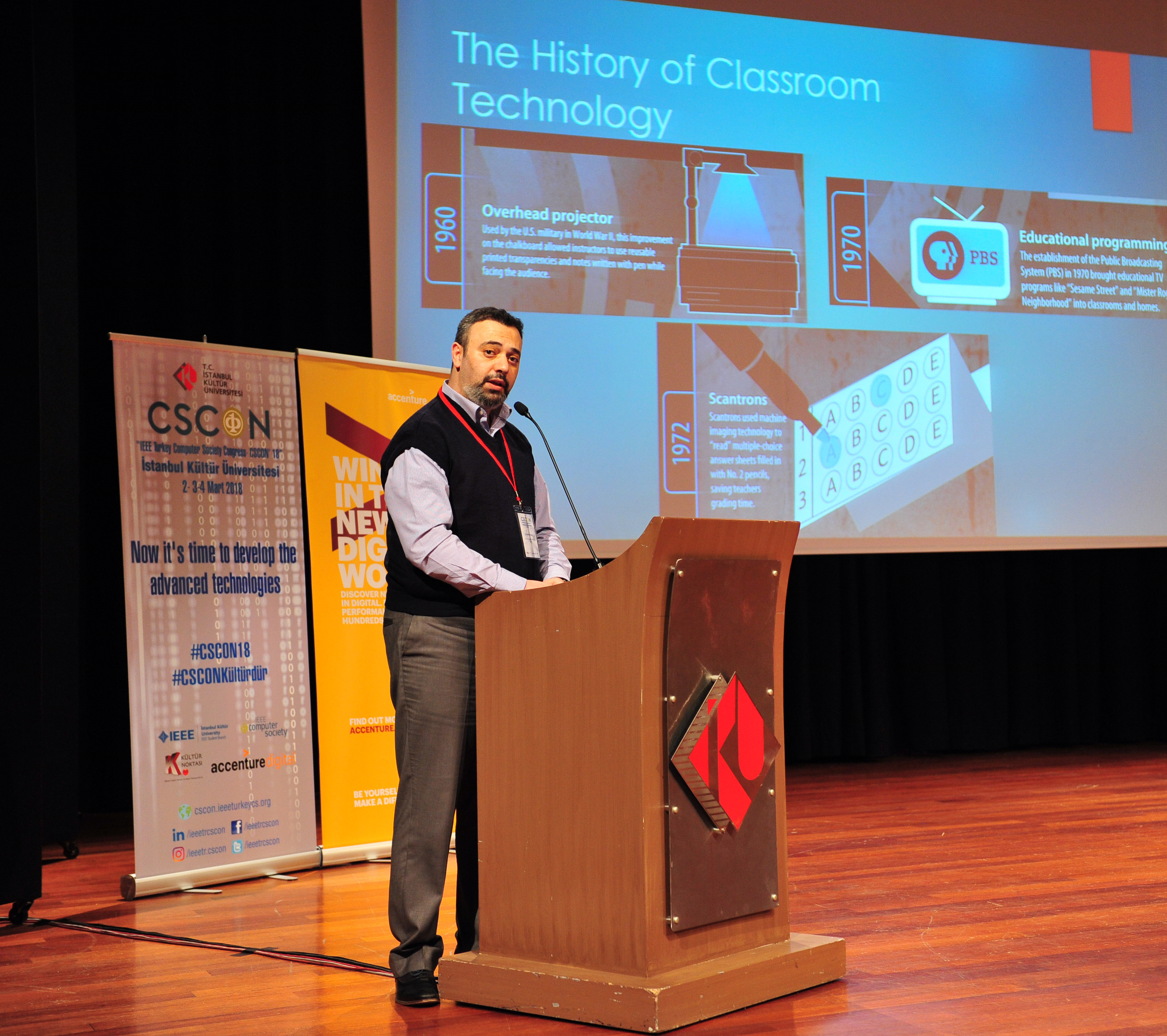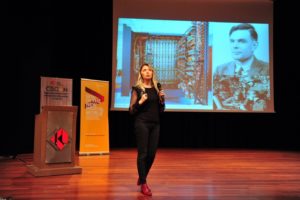Information Technologies and Software Developers Meet at Istanbul Kültür University

IEEE Istanbul Kültür University Computer Society Chapter
Chair—Halil İbrahim Korkmaz
Imagine that a community of scientists and engineers who give direction to the world of technology has its foundations in the great scientists of the 1880s, Alexander Graham Bell and Thomas Edison.
IEEE and the IEEE Computer Society are just such a community.
The community’s representative in Turkey, IEEE Computer Society Turkey Chapter, awarded IEEE Istanbul Kültür University Student Branch Chapter the right to host the country’s largest event, “IEEE Turkey Computer Society Congress—CSCON.”
The conference took place 2-4 March on the Atakoy campus of Istanbul Kültür University with the theme “Innovation, Inspiration, Collaboration,” and aimed at providing information to students interested in the information and software sector.
A total of 1526 people attended the conference, including university, high school and primary school students and professionals from academia and industry. Participants enjoyed presentations and discussions on artificial intelligence, smart cities, the digital transformation, quantum computers, cyber security and industrial software development. The participants were also able to take part in training on artificial intelligence, machine learning, deep learning with Keras, data mining, big data and Hadoop, reverse engineering, and web development with PHP, among others.
Smart Cities
Distinguished Visitor, Seifedine Kadry, professor with Beirut Arab University in Lebanon, presented “Smart Learning in Smart Cities.” Dr. Kadry explained that smart cities are urban intelligent cities where digital technologies are embedded in the city’s services and functions. Smart cities are composed of a smart economy, smart mobility, a smart environment, smart people, smart living and smart governance.
An important element of smart cities, smart learning is a technology-enhanced method of knowledge acquisition that is capable of advising learners and educators, not only on current educational needs and requirements, but also on next steps for learners, based on individualized analytics.
Dr. Kadry further pointed out that the key to successful smart learning is the integration of both quantitative and qualitative methods, and an element of openness in the learning management system, which would enable researchers and educators to adapt the analytics, monitoring and predictions in the face of new information.
Artificial Intelligence
Throughout the conference there was a great deal of interest in artificial intelligence.
Dr. Şeyda Ertekin, assistant professor at Middle East Technical University, provided several examples that emphasized the importance of artificial intelligence, explaining that “Manhattan, in the United States, has a lot of explosions in the electrical system. The extensive use of cables in the city’s electrical grid makes it more difficult to solve the issue. The cables equal the length of three and a half times the circumference of the equator, as the total lengths are very large. The same cables continue to be used in the city that were used in the time of Edison. Machine learning and artificial intelligence methods are actively being used to solve these problems. In this way, the locations where explosions will occur or where the cables will be disconnected are determined in advance. In the future, artificial intelligence will pervade all areas of our lives.”
Following her 1 ½ hour session on the subject, Dr. Ertekin also responded to students’ questions on artificial intelligence.
Training a New Generation
The second and third days of the conference, consisted of training students on a wide variety of topics. As Accenture Turkey Industry X.0 director, Nesrin Kecik, noted at the conference that the training supported the participants’ ability to “be part of the digital transformation.”
Mert Mestanli, who participated in “Data Mining” training organized by associate professor, Dr. Şadi Evren Şeker, said, “It is a unique opportunity for us to study for two days with an instructor followed by many students who take an interest in computer science and engineering in our country and in the world.”
The conference offered training not only to university students and professionals, but also to the generation just now forming their understanding of computer technologies. The “Hour of Code” training provided knowledge of coding to primary school students and participated with the goal of supporting the youth’s development of coding and algorithm creation skills. It also supplied an environment where future generations of IEEE Computer Society members could gain a better understanding of the field and its importance for society.
Hand-over
The privilege of hosting CSCON will be handed to a new group in 2019. To prepare the way for their successors, the volunteer organizers conducted a survey of attendees to understand what worked and what needed improvement. One respondent, an English teacher at an Anatolian high school, stated, “I have always wanted to study computers and software. Although I chose a different department, there was always a place in my heart for the field. I am very happy that I was able to participate in such an important event.”
Student Branch Chapter Chairs conducting similar events can contact Halil Ibrahim Korkmaz at halilibokorkmaz@gmail.com for insight and recommendations.

Leave a Reply